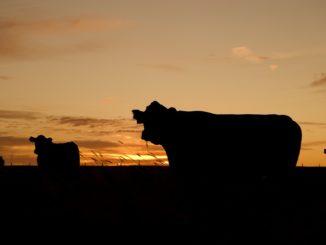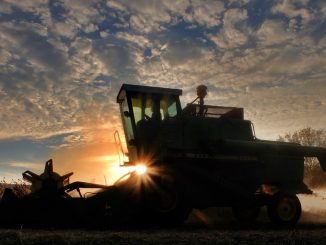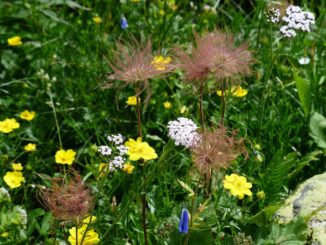Livestock plays a central role in the CAP, but there are numerous areas of concern. While the public are interested in better animal welfare standards, policies lead to overproduction of grain and an abundance of cheap livestock products with all the sustainability issues this carries. Meanwhile the CAP itself has ineffectual animal welfare related payments and few sanctions for transgressions. There is a better way argues Olga Kikou of Compassion in World Farming (CIWF).
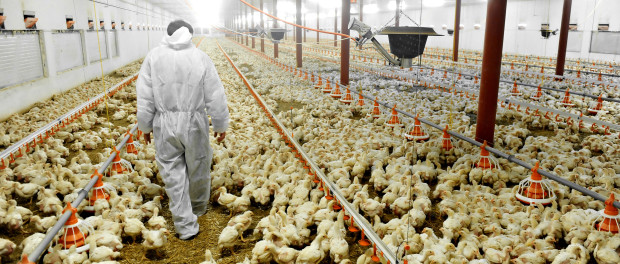
The launch of a 12-week consultation on the future design of farm policy post-2020 in early January provides yet another opportunity to discuss existing farming policy and much needed reform. The expected Communication paper in the second half of 2017 will certainly generate considerable attention after the failed attempt for a Communication paper on Sustainable Food a few years ago.
Debates on the future of the CAP have been taking place for many years. As 2021 draws closer, a broader and more modern approach to respond to new challenges and address the need for sustainability in our food and farming system is needed. Introducing food systems, in addition to agriculture, as an important component of this policy reform will play a pivotal role. In this respect, societal expectations regarding public health and animal welfare will have to be adequately addressed, as they are both currently missing in the CAP. In particular, the extent to which our agriculture policies have resulted in actually worsening animal welfare needs to be seriously examined.
Livestock production has been central to the CAP and public money has supported both animal feed and animal production. The intensification of animal production made possible by the overproduction of grain resulted in an ever-increasing number of animals producing more products than ever. The abundance and availability of animal products combined with low prices has led to over-consumption, which in turn resulted in the current, unsustainable model with EU production levels remaining high because of increased animal product consumption within Europe as well as exports to third countries.
The intensification of the sector has proved detrimental for animals as an increasing number are farmed in very cruel conditions while legislative measures to protect their welfare have proved extremely inadequate. The CAP indeed eased the transition to an industrialized and corporate-led model of agriculture negatively affecting the welfare of animals. Future farm policy reform therefore provides the perfect opportunity to enhance existing agricultural policies at EU level and incorporate new sensibilities regarding farm animals as demonstrated in the recent Eurobarometer study which revealed increased public awareness and support for animal welfare.
Animal welfare payments to farmers were introduced in the CAP over a decade ago in order to compensate farmers for going beyond both national and EU baseline standards. It is doubtful whether these have led to real improvements. Weak or non-existing sanctions in cases of non-compliance have further damaged the drive for any improvements. During the previous CAP period, only 0.1% of the CAP budget was actually spent on animal welfare payments; during the current period the number is expected to rise to 1.5%. Many Member States have not provided for animal welfare payments in their existing programmes. Previous reports have not offered details on outcomes while current programmes do not offer sufficient information on the objectives of the payments.
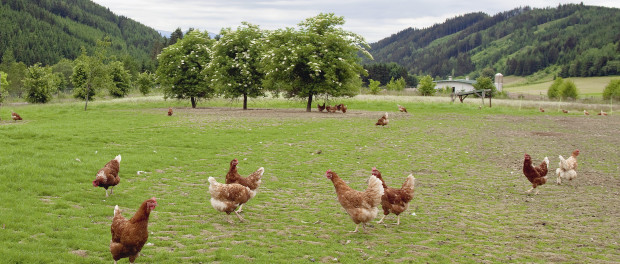
In order to ensure that high standards of animal welfare are integrated in a future Common Food and Farming Policy:
- The improvement of animal welfare should become a compulsory objective and priority.
- Public funding should be used to support concrete and measurable positive outcomes in animal welfare.
- A more comprehensive plan of direct payments should be conditional on compliance with all EU legislation on animal welfare, including poultry production which is currently excluded.
- Minimum spending requirements and mandatory measures should help improve standards for animal agriculture.
- An improved reporting mechanism should be in place accompanied by detailed information and assessment of expected outcomes of payments along with effective sanctions in cases of non-compliance.
- Other CAP payments should ensure that they don’t have an adverse effect on animal welfare.
- Pasture-based farming should replace industrial production giving the opportunity to animals to engage in species-specific natural behaviours.
- Food policies should promote sustainable diets and consumption patterns which should guide agricultural production.

As the CAP evolves to address societal expectations, and rightly so, securing sustainable food systems is of paramount importance. Sustainability should be the guiding principle of food and farming policies. Consequently, a significant reduction in the consumption of animal products to improve health and reduce certain diseases should be among the aims of the reform. Reducing the number of animals raised for food (over 8 billion in the EU) while promoting healthy plant based diets will also have significant environmental benefits as more land will become available, water and air pollution will decline, as will the use of chemical inputs for crop production, while biodiversity will be enhanced. While the debate continues, it is important to remember that public money should be spent on measures that will benefit citizens’ health and wellbeing and pay regard to 21st century principles.
Olga Kikou is the European Affairs Manager for Compassion in World Farming, an international organization working on farm animal welfare and sustainable food and farming policies. She is currently involved in lobbying the EU institutions, promoting campaigns at EU level, engaging with civil society organizations and other stakeholders and developing joint strategies to influence policy, increase awareness and bring an end to factory farming.



